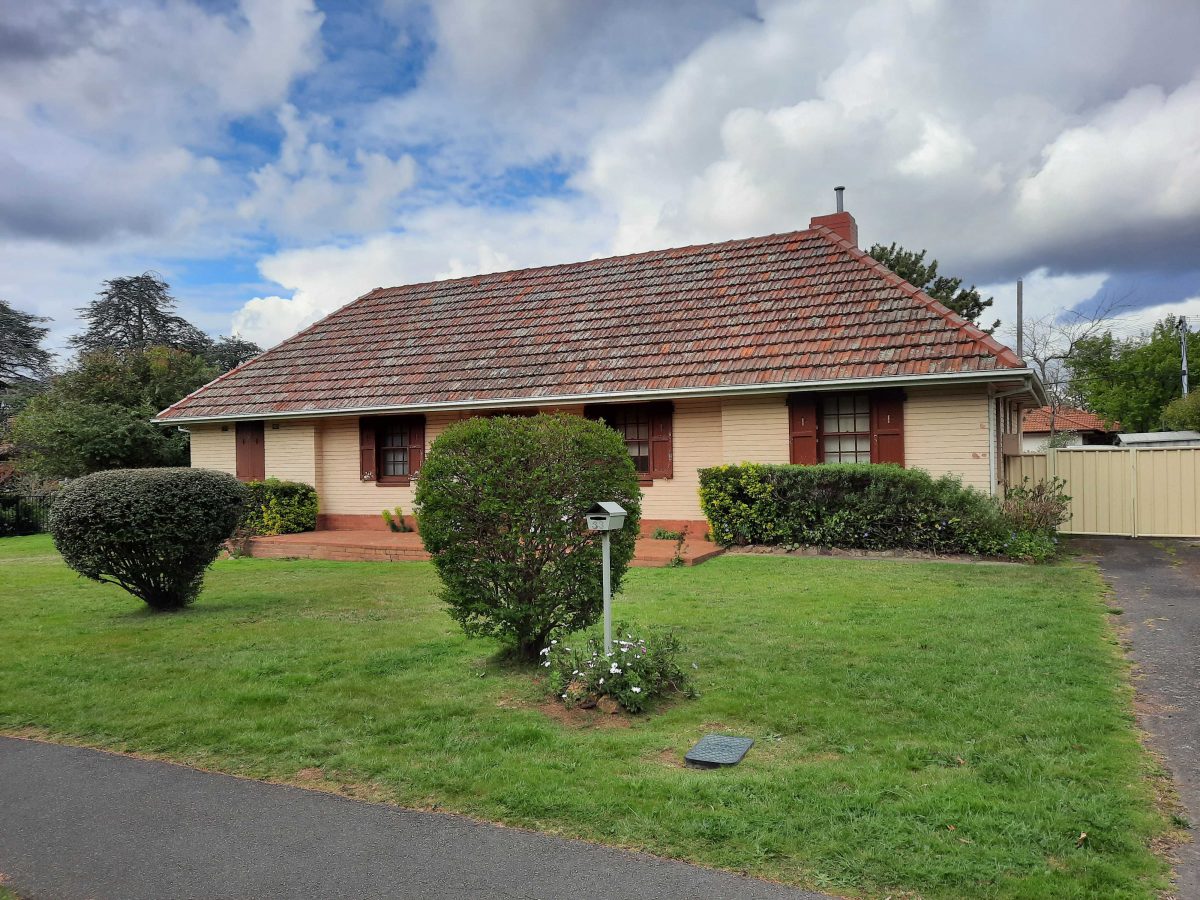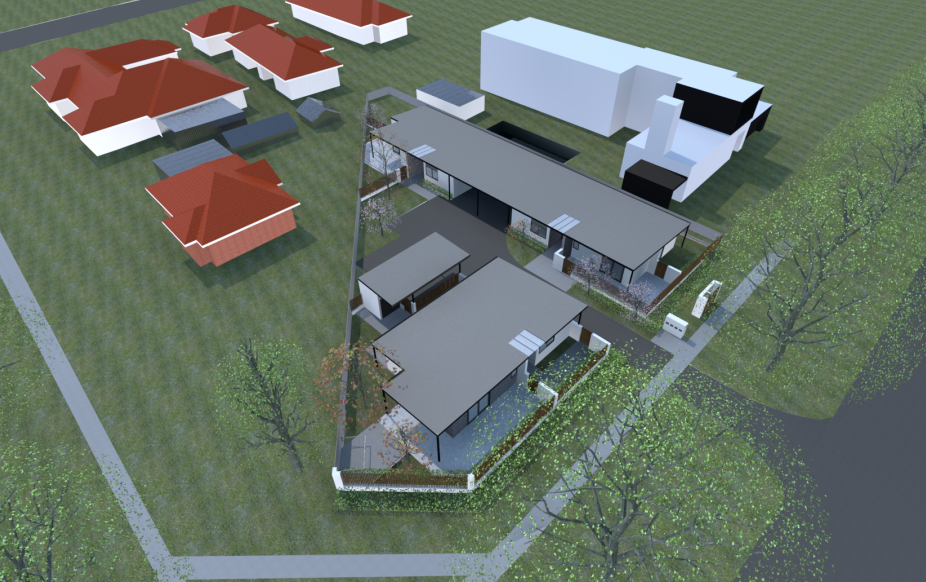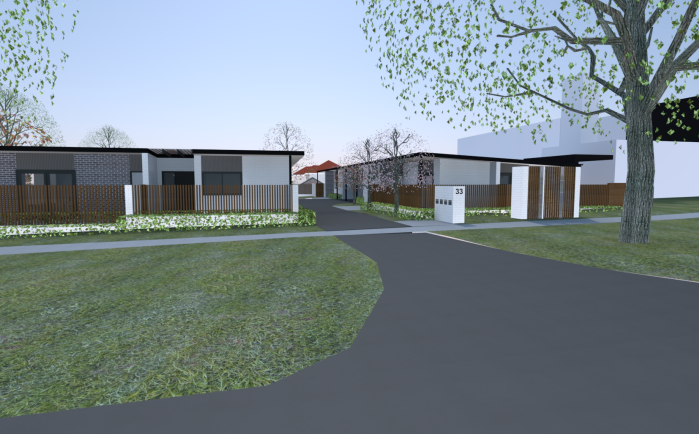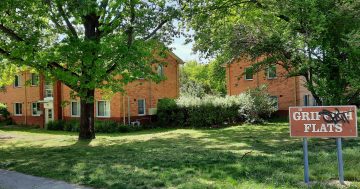
The site at 33 Captain Cook Crescent in Griffith where Housing ACT wants to build three supportive housing dwellings. Photo: Ian Bushnell.
The ACT Government should stop trying to cram sub-standard supportive housing on insufficiently sized blocks and the planning authority should stop approving them, according to a community association that successfully had another project approval knocked on the head.
The ACT Civil and Administrative Tribunal has thrown out planning approval for a proposed Housing ACT development at 33 Captain Cook Crescent in Griffith.
Housing ACT wanted to build three two-bedroom homes with parking on the triangular 1173-square-metre site at a cost of just $701,000.
ACAT found the development application did not comply with the Australian Standard for Adaptable Housing with inadequate open space, lack of functionality and unworkable parking, and slammed ACTPLA for approving it.
This is the third approved Housing ACT DA that ACAT has knocked back since December 2022, following reviews instigated by the Griffith Narrabundah Community Association.

An aerial view of the proposed Griffith supportive housing development. Photo: GMB.
Association president Dr David Denham said Housing ACT insisted on trying to build too many homes on blocks with insufficient space.
The results were proposals that did not comply with the planning rules and substandard developments.
“It is time for ACTPLA to do their job properly and only approve DAs that comply,” Dr Denham said. “And ACT Housing should only propose applications that meet the legislated standards to build suitable public housing.”
Dr Denham agreed that there were probably supportive housing projects in other areas of Canberra where the local community did not have the wherewithal to mount challenges in ACAT that would be substandard.
He said the GNCA backed the construction of quality public housing and was happy with two dwellings on this particular block, but Housing ACT was trying to do too much with the land it had, probably in a bid to meet its renewal targets.
Under the rules, three dwellings could only be built on the Griffith block if they were supportive housing.
“Of course, as soon as you want supportive housing, then you need all these things to cope with wheelchairs and extra parking for people to visit the aged, and wider doors,” Dr Denham said.
“So as soon as you do that, you don’t have room on the block for three decent dwellings.”

A street view of the proposed development. Photo: GMB.
Dr Denham said Housing ACT had wanted to “tweak” the DA in a bid to get it through, but ACAT rejected this, saying it would have to go back to the drawing board.
He said the GNCA believed that prospective tenants should not have to live in substandard dwellings and that compliance with the standards should be dealt with in the DA, not brushed aside to be dealt with ‘later’.
“What we shouldn’t have is a system which treats people in public housing differently,” Dr Denham said. “They’re the same as you or I, they’re residents of the city, so we shouldn’t treat them differently, and therefore there should be the same standards for each.”
Dr Denham rejected arguments that third-party appeals were frustrating plans for much-needed housing in the ACT.
“We’d be very happy if they complied with the planning rules, but when they don’t, they’re not fit for purpose, then Housing ACT and ACTPLA are not doing their job,” he said.
“The public should be concerned by the waste of resources in proposing sub-standard proposals when funds should be invested in suitable public housing for Canberrans that badly need housing assistance.
“How much of ACT taxpayers’ money has been wasted on legal fees in defending development applications that were never compliant?”
Dr Denham feared that the government wanted to give ACTPLA even more power and discretion under the new outcomes-based planning system.
The property currently on the Griffith block had also been the subject of heritage listing nomination but that fell through when the government disbanded the ACT Heritage Council.
Comment was sought from Housing ACT.




















